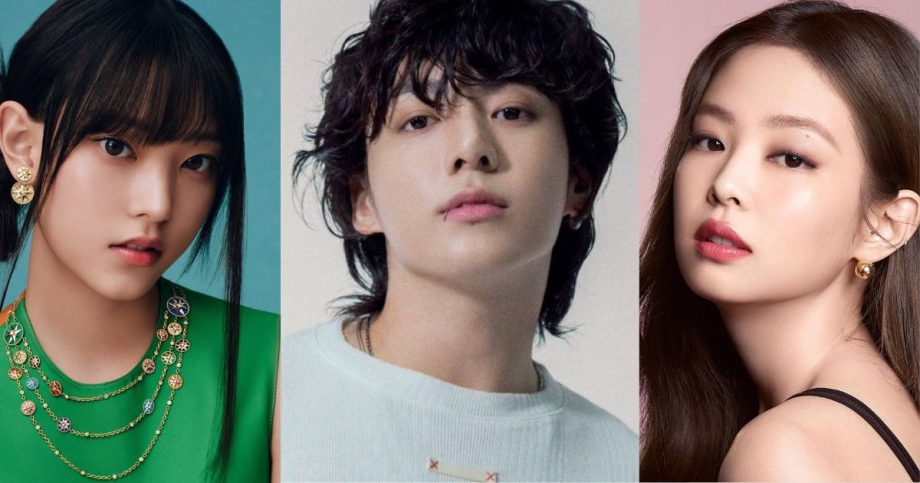Previously, it was reported that UMG (Universal Music Group) announced its plan to remove its artists’ music from the video-sharing app TikTok as its “contract” with the app ended. UMG expressed concerns, including compensation, the danger of AI, and safety for users, as to why it was parting ways with TikTok for now. Read the company’s complete statement, released on January 30, below.
Our core mission is simple: to help our artists & songwriters attain their greatest creative and commercial potential, which is why we must call time out on TikTok.
Learn More: https://t.co/yJDQ7FdgNc pic.twitter.com/Lhluz1ez5H
— Universal Music Group (@UMG) January 31, 2024
Our core mission is simple: to help our artists and songwriters attain their greatest creative and commercial potential. To achieve these goals, our teams employ their expertise and passion to strike deals with partners all around the world, partners who take seriously their responsibilities to fairly compensate our artists and songwriters and treat the user experience with respect.
One of those partners is TikTok, an increasingly influential platform with powerful technology and a massive worldwide user base. As with many other platforms with whom we partner, TikTok’s success as one of the world’s largest social platforms has been built in large part on the music created by our artists and songwriters. Its senior executives proudly state publicly that “music is at the heart of the TikTok experience” and our analysis confirms that the majority of content on TikTok contains music, more than any other major social platform.
The terms of our relationship with TikTok are set by contract, which expires January 31, 2024. In our contract renewal discussions, we have been pressing them on three critical issues—appropriate compensation for our artists and songwriters, protecting human artists from the harmful effects of AI, and online safety for TikTok’s users.
We have been working to address these and related issues with our other platform partners. For example, our Artist-Centric initiative is designed to update streaming’s remuneration model and better reward artists for the value they deliver to platforms. In the months since its inception, we’re proud that this initiative has been received so positively and taken up by a range of partners, including the largest music platform in the world. We’ve also moved aggressively to embrace the promise of AI while fighting to ensure artists’ rights and interests are protected now and far into the future. In addition, we’ve engaged a number of our platform partners to try to drive positive change for their users and by extension, our artists, by addressing online safety issues, and we are recognized as the industry leader in focusing on music’s broader impact on health and wellness.
With respect to the issue of artist and songwriter compensation, TikTok proposed paying our artists and songwriters at a rate that is a fraction of the rate that similarly situated major social platforms pay. Today, as an indication of how little TikTok compensates artists and songwriters, despite its massive and growing user base, rapidly rising advertising revenue and increasing reliance on music-based content, TikTok accounts for only about 1% of our total revenue.
Ultimately TikTok is trying to build a music-based business, without paying fair value for the music.
On AI, TikTok is allowing the platform to be flooded with AI-generated recordings—as well as developing tools to enable, promote and encourage AI music creation on the platform itself – and then demanding a contractual right which would allow this content to massively dilute the royalty pool for human artists, in a move that is nothing short of sponsoring artist replacement by AI.
Further, TikTok makes little effort to deal with the vast amounts of content on its platform that infringe our artists’ music and it has offered no meaningful solutions to the rising tide of content adjacency issues, let alone the tidal wave of hate speech, bigotry, bullying and harassment on the platform. The only means available to seek the removal of infringing or problematic content (such as pornographic deepfakes of artists) is through the monumentally cumbersome and inefficient process which equates to the digital equivalent of “Whack-a-Mole.”
But when we proposed that TikTok takes similar steps as our other platform partners to try to address these issues, it responded first with indifference, and then with intimidation.
As our negotiations continued, TikTok attempted to bully us into accepting a deal worth less than the previous deal, far less than fair market value and not reflective of their exponential growth. How did it try to intimidate us? By selectively removing the music of certain of our developing artists, while keeping on the platform our audience-driving global stars.
TikTok’s tactics are obvious: use its platform power to hurt vulnerable artists and try to intimidate us into conceding to a bad deal that undervalues music and shortchanges artists and songwriters as well as their fans.
We will never do that.
We will always fight for our artists and songwriters and stand up for the creative and commercial value of music.
We recognize the challenges that TikTok’s actions will cause, and do not underestimate what this will mean to our artists and their fans who, unfortunately, will be among those subjected to the near-term consequences of TikTok’s unwillingness to strike anything close to a market-rate deal and meaningfully address its obligations as a social platform. But we have an overriding responsibility to our artists to fight for a new agreement under which they are appropriately compensated for their work, on a platform that respects human creativity, in an environment that is safe for all, and effectively moderated.
We honor our responsibilities with the utmost seriousness. Intimidation and threats will never cause us to shirk those responsibilities.
— UMG
TikTok also directly responded at the time. While many were disappointed by UMG’s decision, netizens agreed that TikTok’s response wasn’t “professional.”
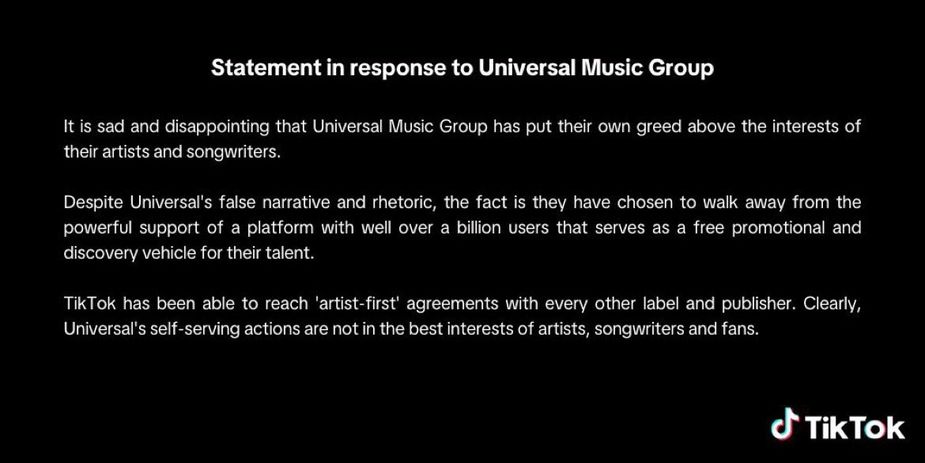
Initially, mainstream pop artists, including Taylor Swift, Justin Bieber, and Ariana Grande, and K-Pop groups, BTS and BLACKPINK, were speculated to be some that would be affected. However, on February 1, when the purging began, it was different. Many artists were affected, but not as many as netizens originally thought.
UMG will remove their artists’ music from TikTok today, after failing to reach a new agreement.
– Many artists will be affected by this, Taylor Swift, Ariana Grande, BLACKPINK, Harry Styles, BTS, TWICE, TXT, Bad Bunny, Lady Gaga and more. pic.twitter.com/eIe0ApEq9n
— About Music (@AboutMusicYT) January 31, 2024
While most Western UMG artists were affected, BTS and BLACKPINK were primarily unaffected by UMG’s song removals. For example, HYBE groups were some of the least affected since their deal with UMG was only for distribution. The one BTS song muted initially was “Bad Decisions,” but it’s a collaboration with Benny Blanco and Snoop Dogg.
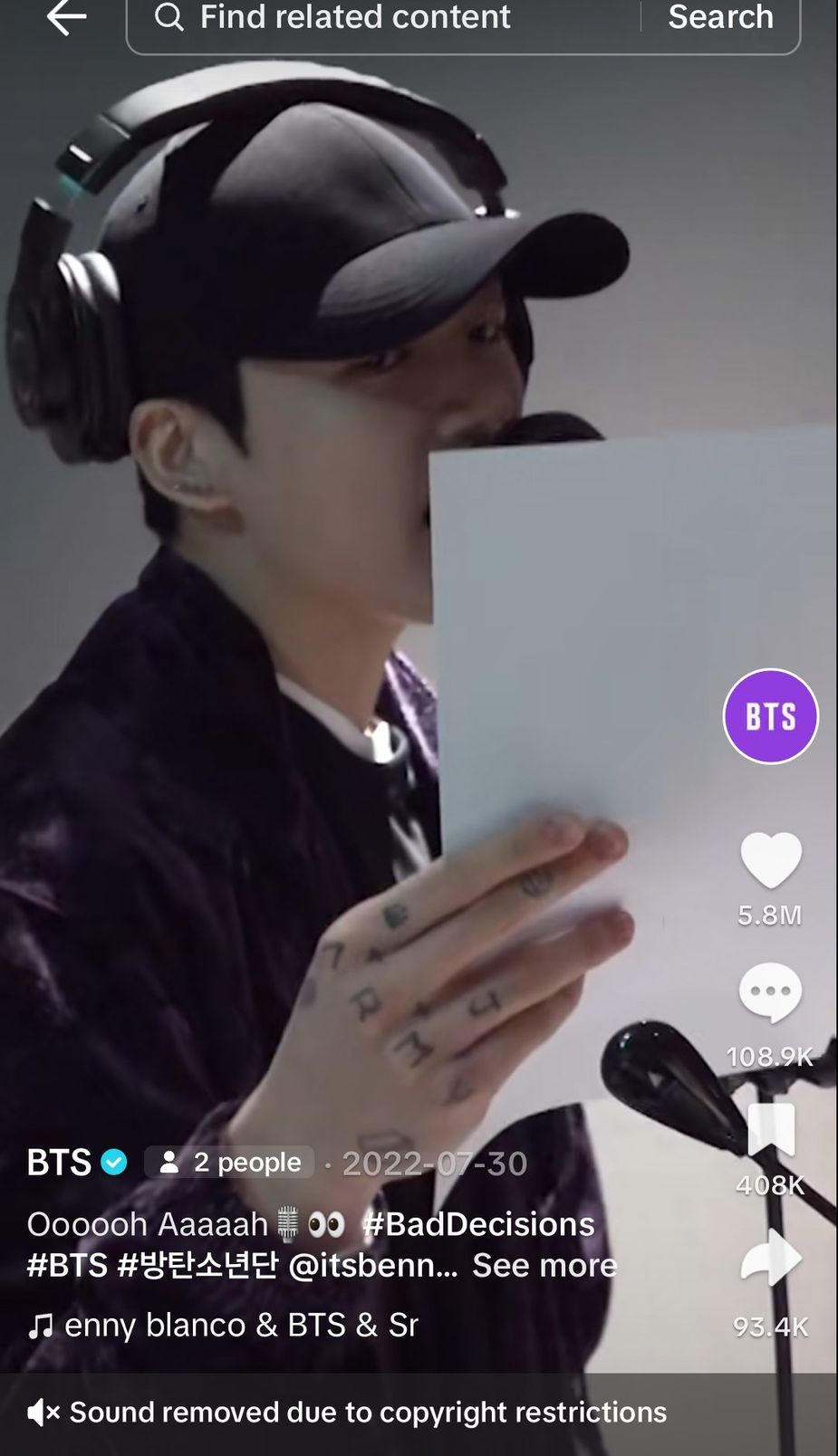
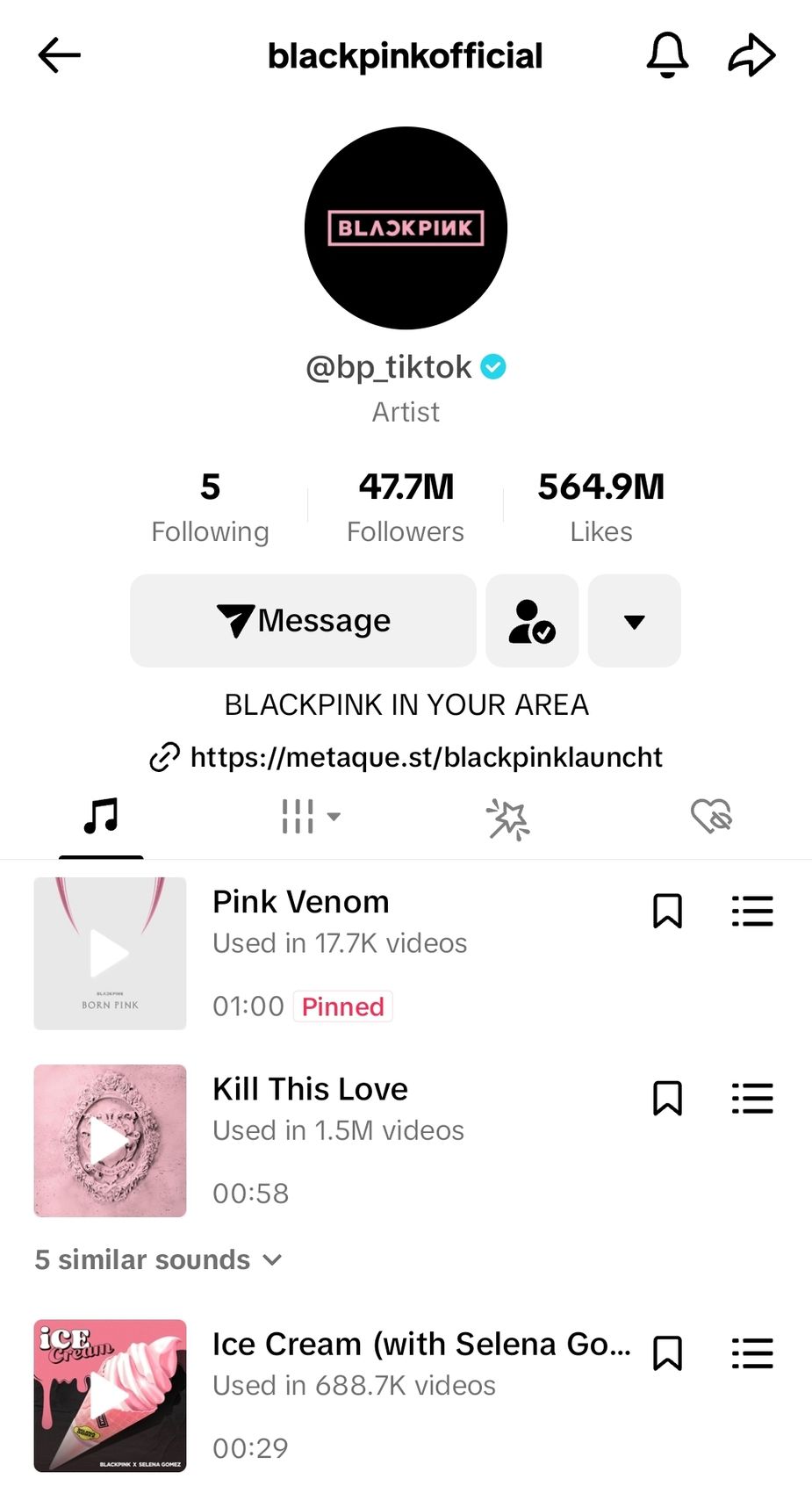
However, many K-Pop groups weren’t as lucky. Groups, including NCT units, SuperM, Red Velvet, &TEAM, and more, had many songs taken down. Most groups’ Japanese or English releases were removed. However, some groups, such as TWICE, lost specific but popular songs. For example, “Feel Special,” “Cry For Me,” and “Knock Knock” were taken down.
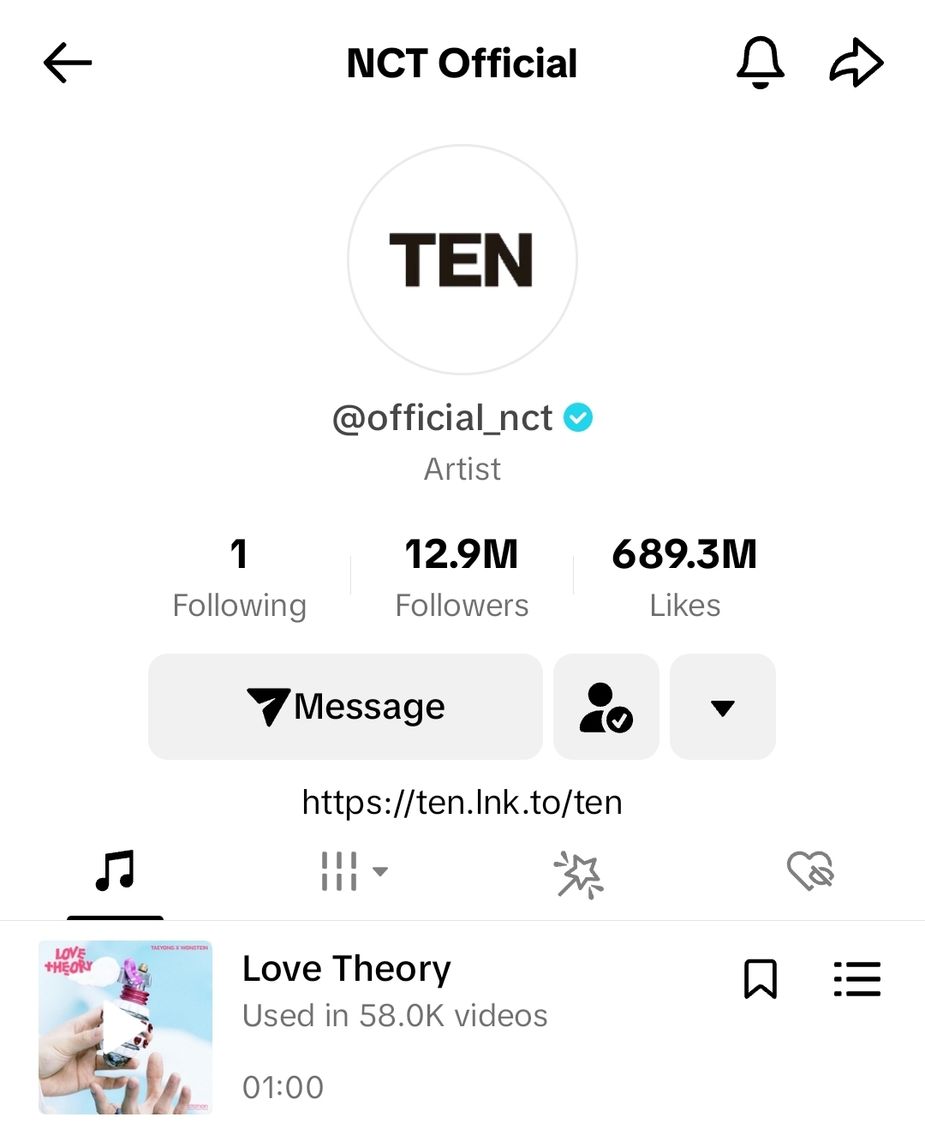
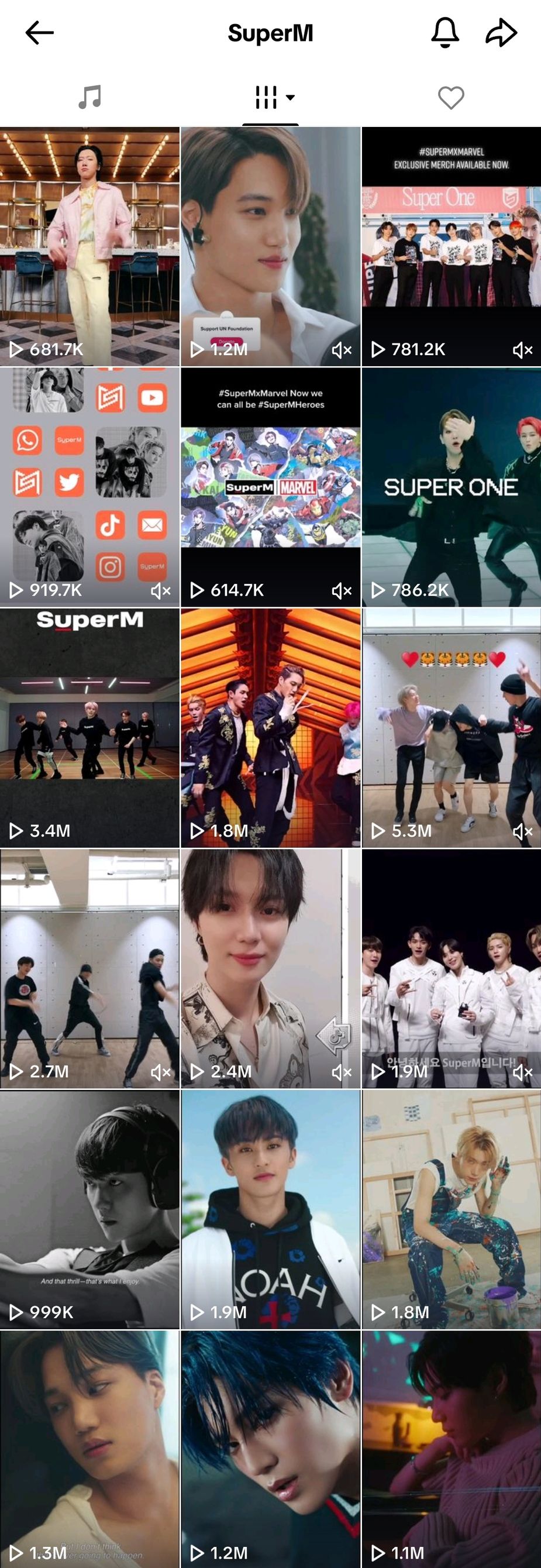
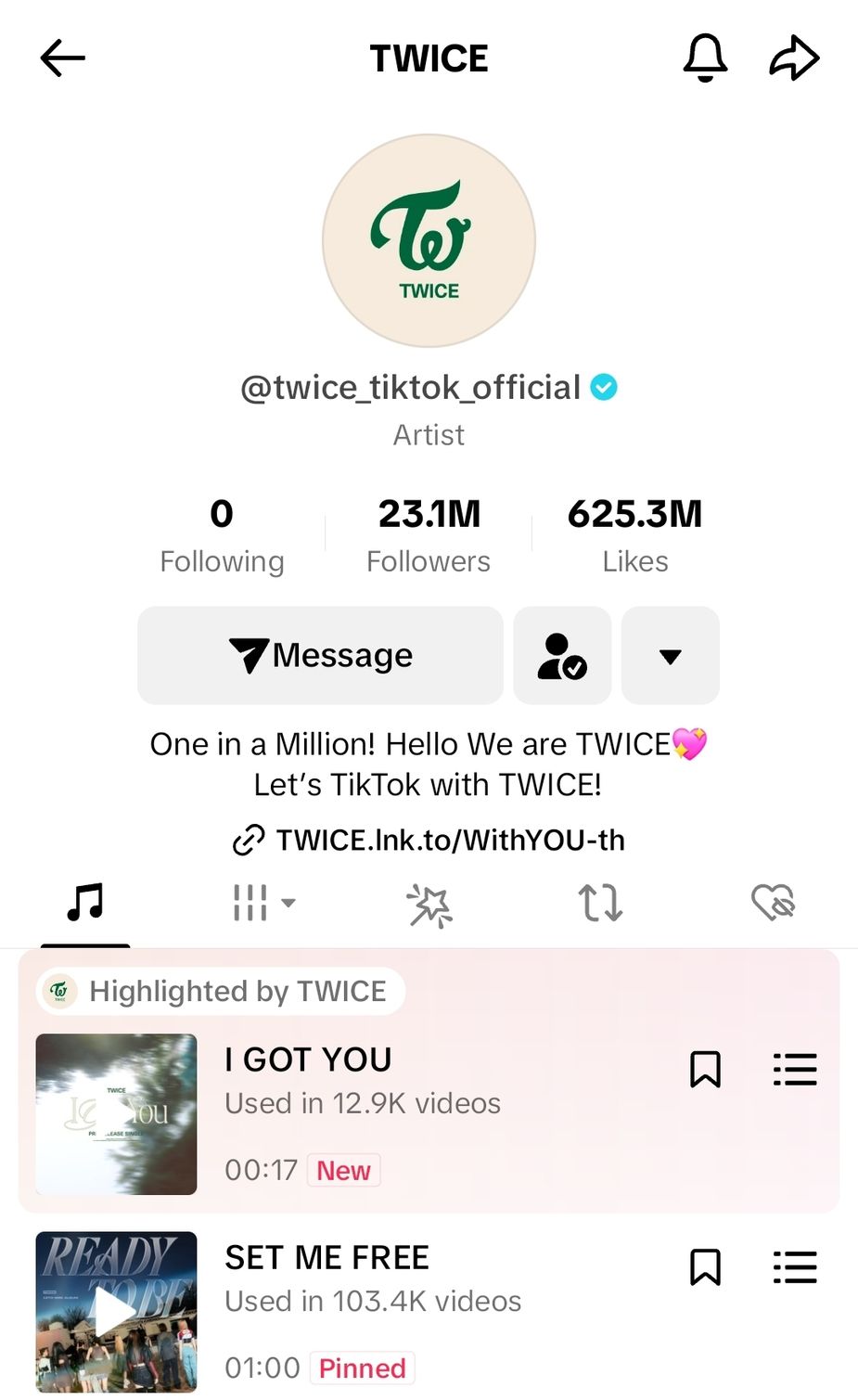
Unfortunately, even more songs and artists have been affected as the month is ending. ONCEs noticed even more TWICE songs, including “Set Me Free” and Jihyo‘s solo releases, have been muted.
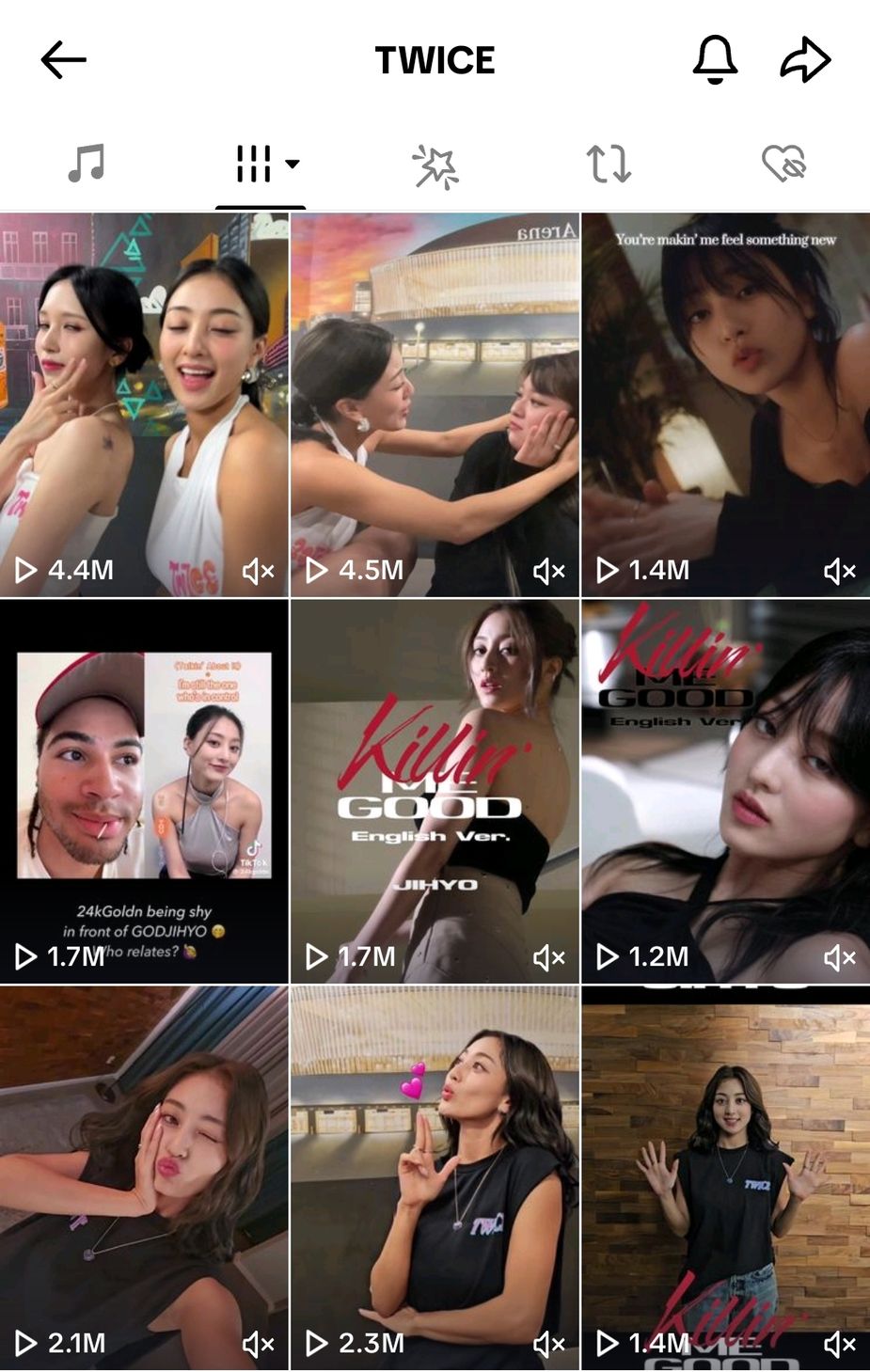
BLACKPINK has also taken a hit. Most of their discography is now gone, with only a few exceptions. So, when you check the group’s account, there are miles of muted videos.
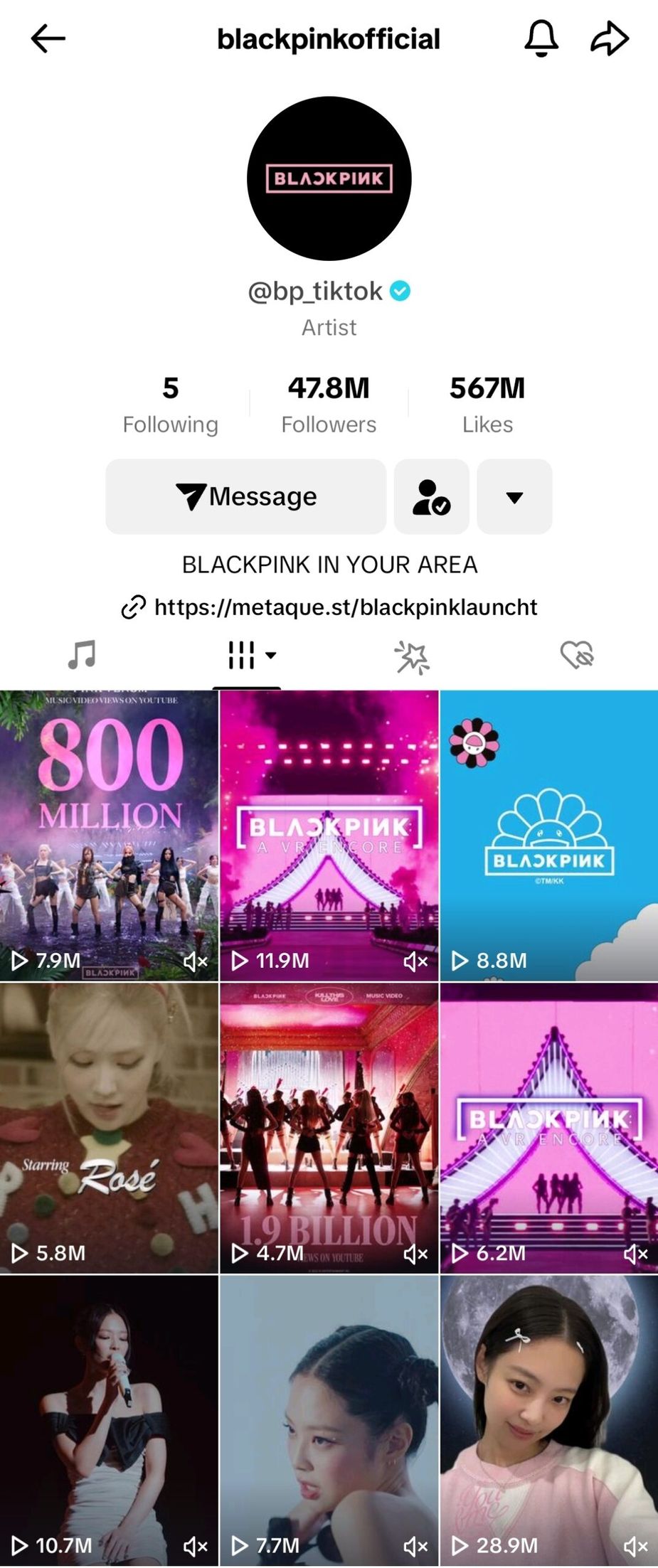
Likewise, BTS has now been hit by UMG’s takedown. There are now numerous muted videos on the group’s account as their solo releases, including Jungkook and Jimin, have been affected. However, even beloved songs by the group, including “Spring Day,” “Stay Gold,” “Run BTS,” “Life Goes On,” and more, have been “removed due to copyright restrictions.” More collaborations, such as “My Universe” with Coldplay and J-Hope and Becky G‘s “Chicken Noodle Soup,” were also affected.
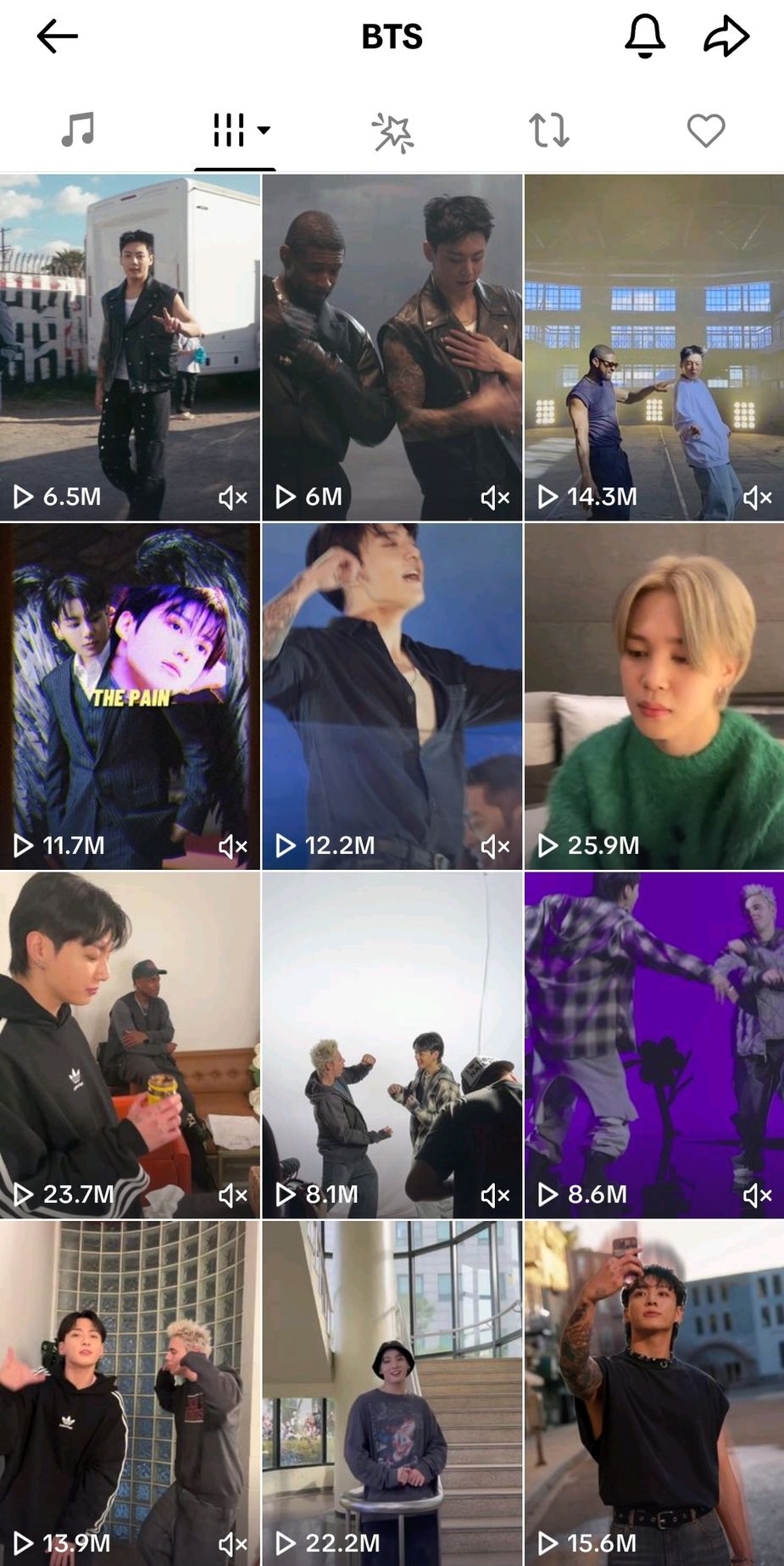
Labelmate TXT‘s album, The Name Chapter: TEMPTATION, also took a hit. For example, videos containing “Sugar Rush Ride,” “Happy Fools (feat. Coi Leray),” and “Tinnitus” are now muted.
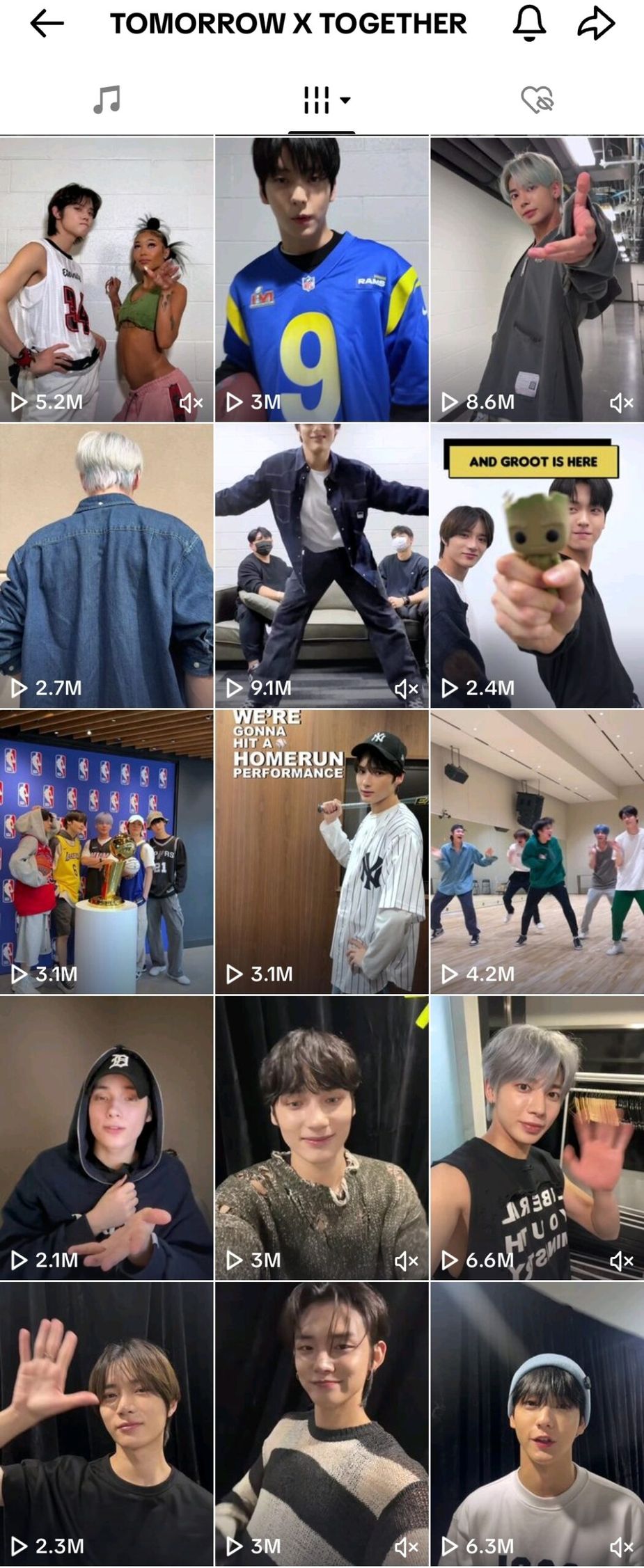
Even NewJeans‘ viral hit “OMG” has been removed. So, any video that once featured it is now muted.
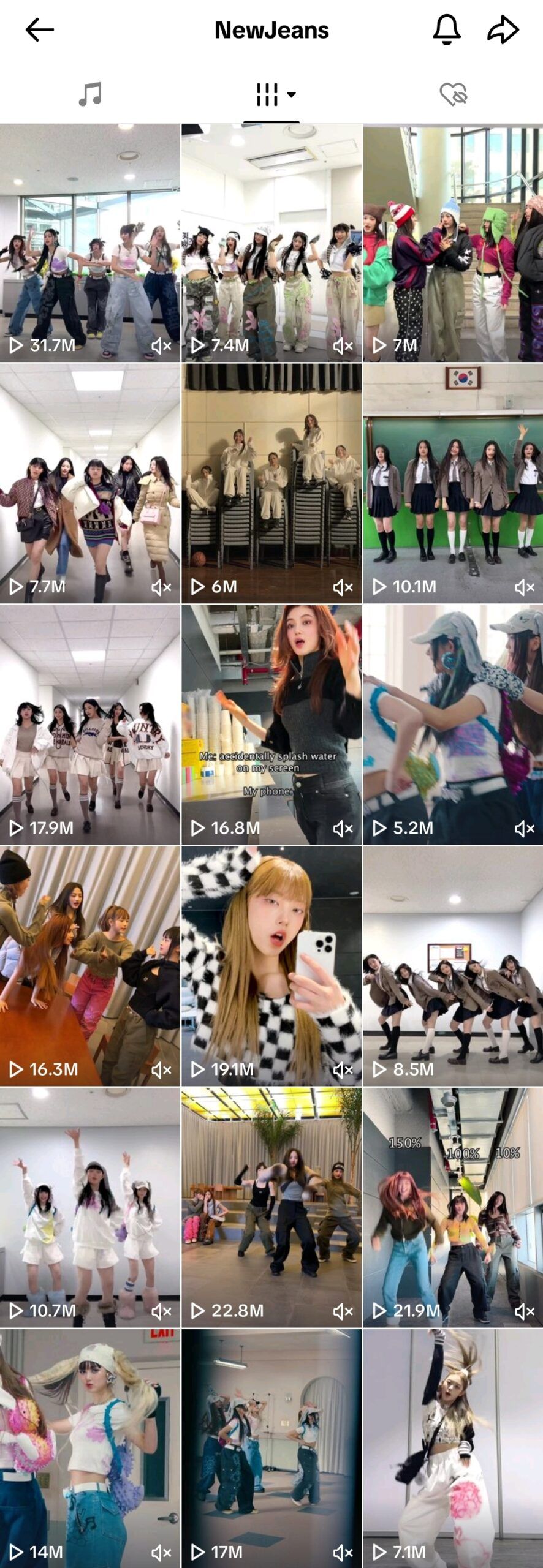
Select MONSTA X songs have been removed from the app. The Dreaming, including the song “One Day,” has been taken down. It’s not just English releases, though. Some Korean releases, such as FANTASTIA X, were also affected.
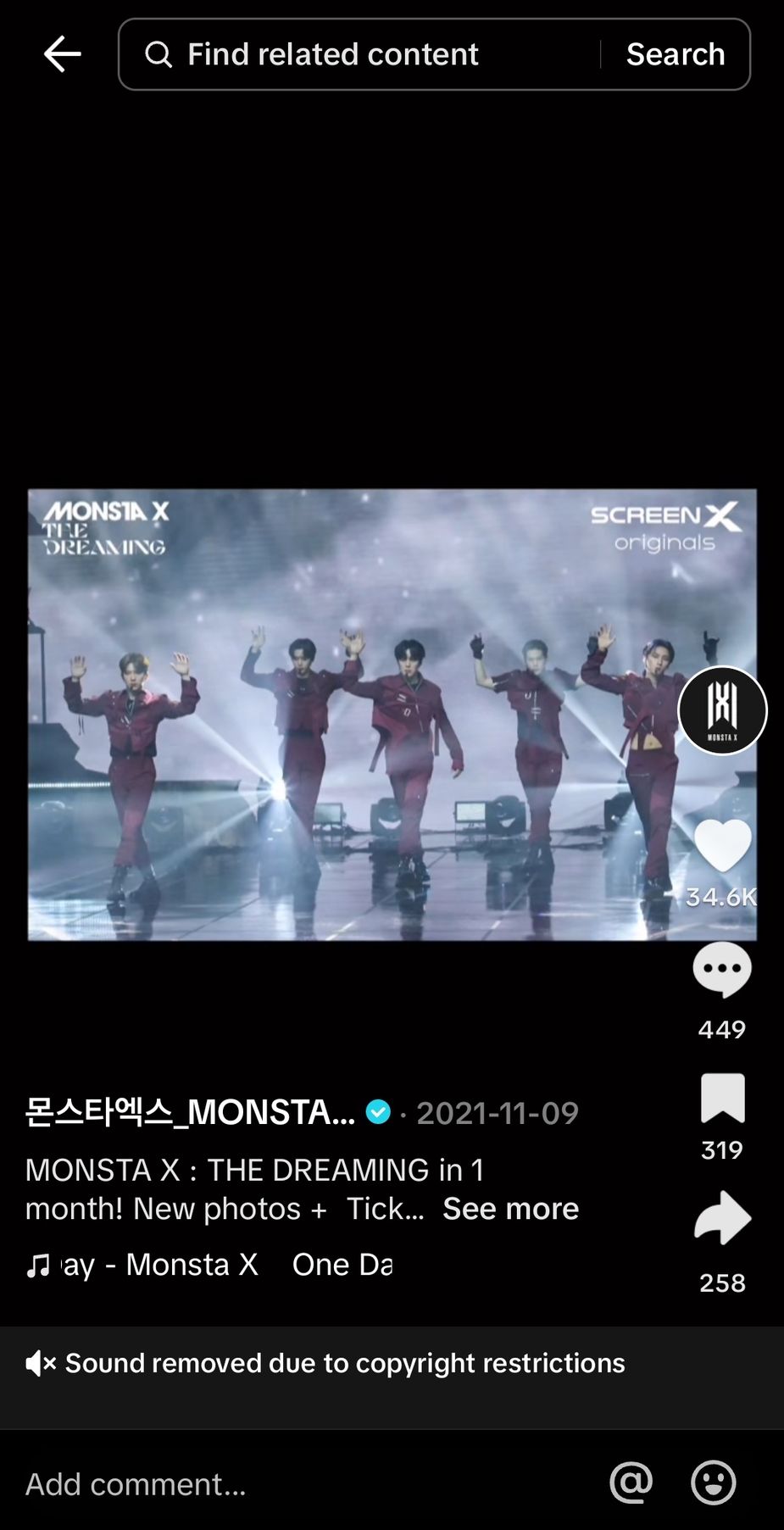
Netizens have reported that even more artists, including 1st, 2nd gen, and even disbanded groups, have now been affected too. Naturally, fans are disappointed as many of their favorite artists’ videos have no sound, edits are muted, etc. It also makes it challenging to promote artists’ music.
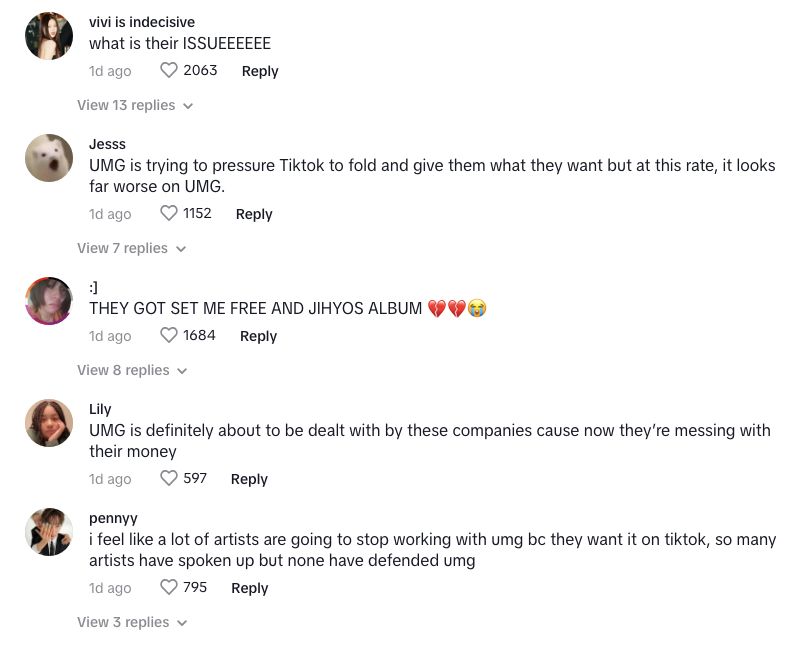
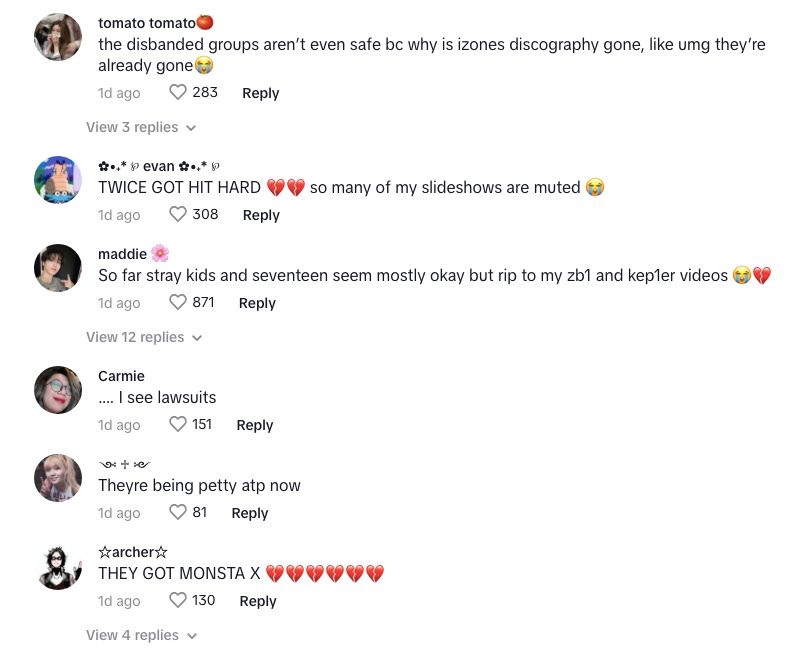
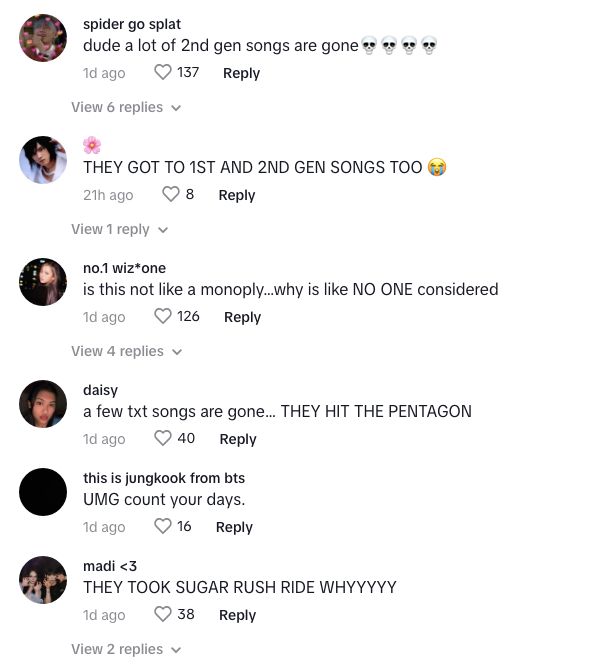
Initially, only artists and songs directly under UMG or published via a subsidiary were purged. The latest UMG takedown targets music related to the company in any way, including if a song’s writer, producer, etc., were under UMG or a subsidiary.
@dizzzys they took down even more music! what’s safe!? #kpop #kpopfyp #umg #universalmusic ♬ original sound – DizZzyPop
Still, it seems to be the case that this takedown varies depending on location. Previously, netizens speculated that it’s mainly North America affected by UMG’s actions, as some worldwide have reported that they can still hear many of the above-mentioned sounds. Not everyone was unaffected since not every K-Pop artist has worked with or been affiliated with UMG.


